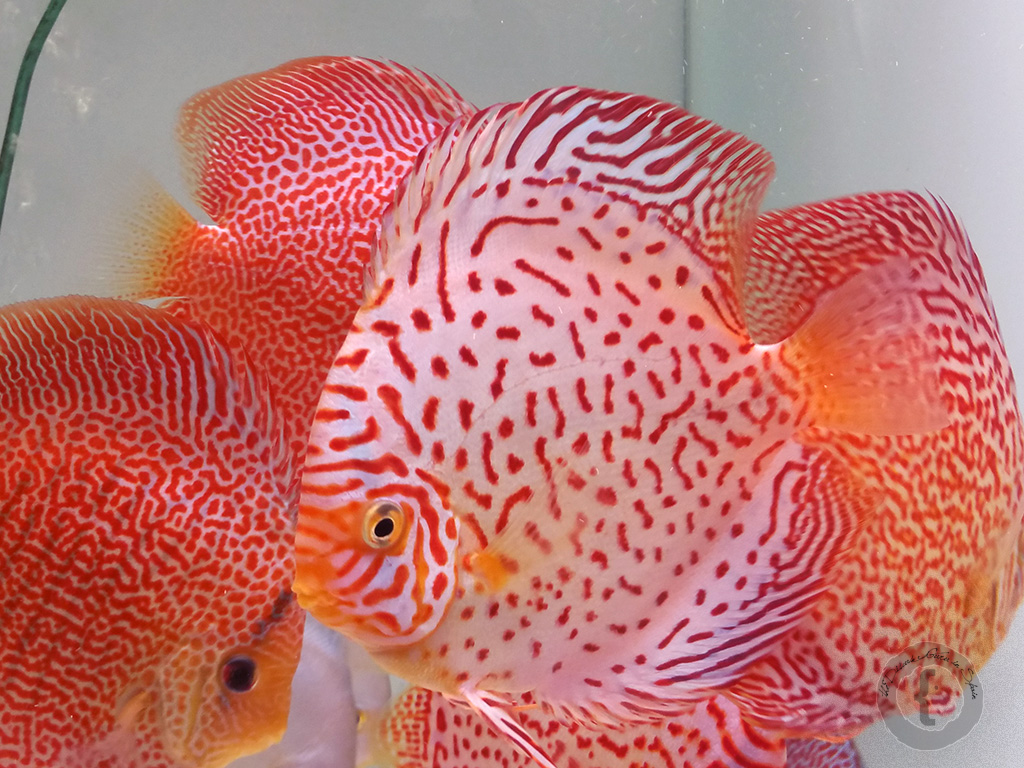Keeping Discus Fish – What It Really Takes

Keeping Discus Fish for the First Time: A Primer
Pets / Aquarium Fish
If you are in the market for stunning tropical fish that truly embodies the species diversity of places such as the Rio Negro or the Amazon Basin, then you’ve come to the right place. Image Credit: Biotópica, breeding discus fish Leopard Spotted, Wikimedia Commons. Image License: Attribution-ShareAlike 4.0 International (CC BY-SA 4.0), Creative Commons.
Disclosure: Some of the links to products on this website are affiliate links. It simply means, at no additional cost to you, I'll earn a commission if you click through and buy any product. Read full disclosure here! Thank you for your support.
Today we are going to talk about the essentials of taking care of discus fish – arguably one of the most prized ornamental freshwater fish in the world today.
Though one of the pricier species found in pet stores and private breeding facilities, the discus fish is worth every penny because of its gentle nature, excellent rearing ability, and hardiness in captivity.
Today’s discussion is designed for people who have never taken care of discus fish, but would like to get a good head start in discovering what it really takes to keep this species healthy in captivity. Let’s start!
How to Keep Discus Fish?
1. The first thing you have to keep in mind is that discus fish prefer peaceful surroundings most of the time. You can provide them with constant peace by simply placing their tank in a low-activity area in your home.
The bedroom is prime real estate for discus fish, because people generally stay in their bedrooms to read, relax, or sleep. It doesn’t have a lot of traffic, so it’s one of the best places to relocate a species tank for discus fish.
Discus fish also need rocks and vegetation so they can hide whenever they feel insecure. Another thing: don’t put hyperactive fish in a tank filled with discus! The excess activity from other fish will stress out your discuss.
2. Like other ornamental fish, discus fish will function better if you have a regular day and night cycle for them. The day and night cycle for freshwater/saltwater tanks may coincide with your waking and sleeping hours. Just make the cycle consistent so the discus fish can establish routines of their own. A night cycle can be initiated by simply turning off the tank’s lighting.
3. Make partial water changes every week to keep the water fresh and clean. Remove one third of the water, and use the necessary water aids to remove chlorine and other problematic chemicals from tap water. Tap water must stand for at least twenty-four hours before being added to tank water if you do not use dechlorinating solutions.
4. When you are vacuuming the gravel on top of the under-gravel filter, don’t clean the surface too much. Remember – the gravel is home to beneficial bacteria. Vacuuming the gravel also removes the bacteria from the natural home. If you find this problematic because there is too much solid waste accumulating at the bottom of the tank, use an external trickle filter to ensure that the nitrogen cycle in the tank is not disturbed by your routine cleaning.
5. Have a backup power source ready for your fish. A tank can become dangerously toxic to fish after an hour of not being filtered. If you don’t want to deal with sudden ammonia spikes, have an uninterruptible power supply ready.
More INFO: Discus Fish Information, Types of Discus Fish, Discus Fish Breeders, Tank for Discus Fish, Discus Fish Sale << HERE!
Do you have any comments or questions? Leave them below.
Did you find this article informative? Share it in Social Media below.
Link to this article by using the following URL: https://uniqsource.com/pets/keeping-discus-fish/ COPY and PASTE!

